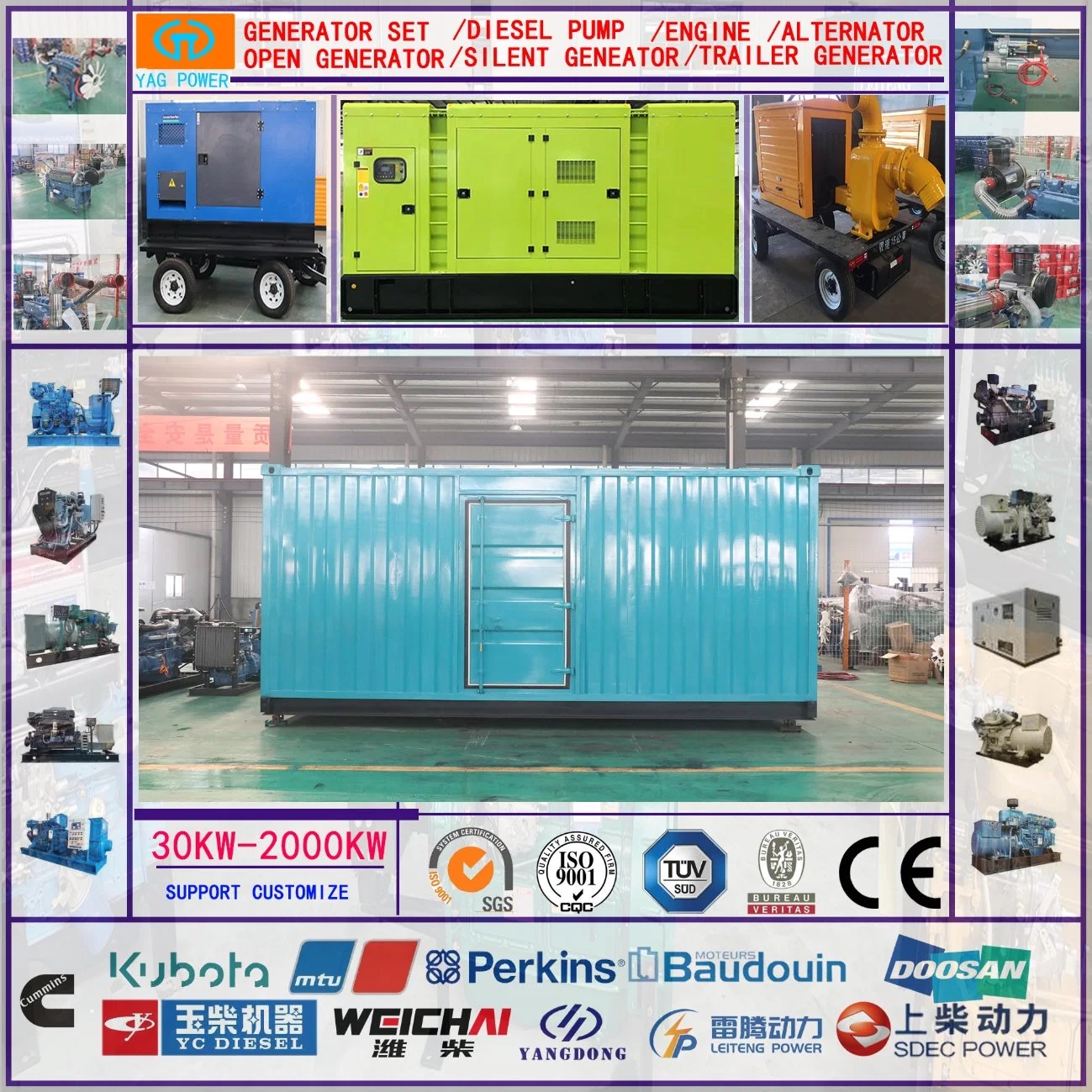Diesel Generators for Voltage Regulation A Comprehensive Guide

Introduction
Diesel generators are a critical component of many power systems, providing backup power in case of grid failures or as a primary power source in remote areas. One of the key functions of diesel generators is voltage regulation, ensuring a stable and reliable power supply. This article will explore the role of diesel generators in voltage regulation, how they work, their advantages and disadvantages, as well as best practices for their maintenance and operation.
Understanding Voltage Regulation
Voltage regulation is the process of maintaining a stable voltage level within an electrical system, ensuring that the voltage remains within acceptable limits despite fluctuations in load or other external factors. In an ideal scenario, the voltage output of a generator should remain constant regardless of changes in load demand.
Voltage regulation is crucial for the proper functioning of electrical equipment and devices. Fluctuations in voltage can lead to equipment damage, reduced efficiency, and even safety hazards. Diesel generators play a vital role in voltage regulation, especially in situations where grid power is unstable or unavailable.
How Diesel Generators Work for Voltage Regulation
Diesel generators operate on the principle of converting mechanical energy into electrical energy through the combustion of diesel fuel. The generator consists of an engine that drives an alternator, which produces electricity. The alternator generates an alternating current (AC), which is then converted into a stable voltage output suitable for powering electrical loads.
https://www.lkpowerplant.com/160kw-400kw/ in a diesel generator involves controlling the speed of the engine to maintain a constant frequency of the generated electricity. As the load on the generator changes, the engine adjusts its speed to compensate for the variations in power demand, resulting in a stable voltage output.
Diesel generators are equipped with voltage regulators that monitor the output voltage and make adjustments to ensure it remains within the specified limits. These voltage regulators can be manual or automatic, with automatic regulators being more common in modern diesel generator systems.
Advantages of Using Diesel Generators for Voltage Regulation
1. Reliability: Diesel generators are known for their reliability and durability, making them a popular choice for voltage regulation in critical applications such as hospitals, data centers, and industrial facilities. Diesel generators can quickly start up and provide power during emergencies, ensuring uninterrupted operation of essential equipment.
2. Flexibility: Diesel generators can be easily deployed in remote locations or areas with unreliable grid power, providing a reliable source of electricity for voltage regulation. They can be used as standalone units or in parallel with other generators to meet varying power demands.
3. Cost-Effectiveness: Diesel fuel is widely available and more affordable than other types of fuel, making diesel generators a cost-effective option for voltage regulation. Diesel generators also require less maintenance compared to other types of generators, reducing long-term operating costs.
4. High Power Output: Diesel generators are capable of producing high power output, making them suitable for voltage regulation in applications with high power demands. They can easily handle peak loads and provide sufficient power for critical equipment.
5. Longevity: Diesel generators are designed to operate continuously for extended periods, making them a dependable source of power for voltage regulation. With proper maintenance and care, diesel generators can last for many years, providing a reliable power supply.
Disadvantages of Using Diesel Generators for Voltage Regulation
1. Noise and Emissions: Diesel generators can be noisy and produce emissions during operation, which may be a concern in residential areas or enclosed spaces. Proper ventilation and soundproofing measures may be required to mitigate these issues.
2. Fuel Storage: Diesel fuel must be stored on-site for the operation of diesel generators, which can present safety hazards and logistical challenges. Adequate fuel storage facilities and proper handling procedures are essential to ensure the safe operation of diesel generators.
3. Maintenance Requirements: Diesel generators require regular maintenance to ensure optimal performance and reliability. This includes servicing of the engine, alternator, cooling system, and other components, as well as monitoring fuel levels and changing filters and oil as needed.
4. Initial Cost: Diesel generators have a higher upfront cost compared to some other types of generators, which may deter budget-conscious buyers. However, the long-term reliability and cost-effectiveness of diesel generators often outweigh the initial investment.
Best Practices for Diesel Generator Maintenance and Operation
1. Regular Inspections: Perform routine inspections of the diesel generator, including checking for leaks, loose connections, and signs of wear and tear. Inspect the fuel system, cooling system, and electrical components to ensure they are in good working condition.
2. Scheduled Maintenance: Follow the manufacturer's recommended maintenance schedule for the diesel generator, including oil changes, filter replacements, and servicing of critical components. Regular maintenance helps prevent breakdowns and ensures the generator operates efficiently.
3. Fuel Quality: Use high-quality diesel fuel that meets the specifications recommended by the generator manufacturer. Contaminated or low-quality fuel can damage the engine and lead to performance issues.
4. Load Testing: Conduct regular load tests on the diesel generator to verify its performance under varying load conditions. Load testing helps identify any issues with the voltage regulation system and ensures the generator can handle peak loads.
5. Emergency Preparedness: Develop an emergency response plan for power outages and generator failures, including procedures for starting up the generator, switching to backup power, and troubleshooting common issues. Train personnel on emergency protocols to ensure a swift and effective response.
Conclusion
Diesel generators play a crucial role in voltage regulation, providing a reliable and stable power supply for various applications. Their reliability, flexibility, and cost-effectiveness make them a popular choice for critical power systems where voltage regulation is essential. By following best practices for maintenance and operation, diesel generators can ensure uninterrupted power supply and protect electrical equipment from voltage fluctuations. Whether used as a backup power source or a primary power generator, diesel generators continue to be a dependable solution for voltage regulation in a wide range of industries.

